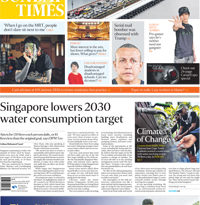OP-ED: Editorial | Cambodia’s Parliamentary Diplomacy within ASEAN
.
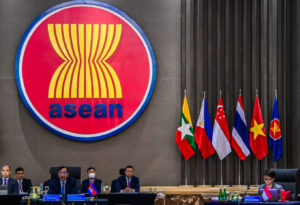
The President of Cambodia’s National Assembly, Samdech Khuon Sudary, led a delegation to the 45th General Assembly of the ASEAN Inter-Parliamentary Assembly (AIPA) in Vientiane, from October 17 to 23. The focus of the General Assembly is to promote parliamentary dialogue and cooperation on regional and international issues, with a special emphasis on building a people-centered ASEAN Community.
The theme of this year underscores the critical role of parliaments in strengthening connectivity and fostering inclusive growth across ASEAN. As the region navigates an increasingly complex, volatile geopolitical landscape, Cambodia’s parliamentary diplomacy has gained renewed momentum, working closely with other legislative bodies to promote peace and development for humanity underpinned by the values of mutual respect and trust, ensuring that regional cooperation benefits all members of ASEAN fairly.
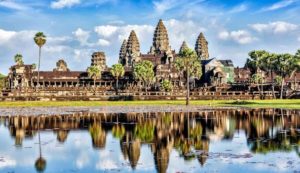
….
Looking ahead, Cambodia will demonstrate her proactive parliamentary diplomacy by hosting the 11th Plenary Session of the International Parliament for Tolerance and Peace (IPTP) next month- it will serve as a platform for multi-stakeholder dialogue on peace, while strengthening open and inclusive multilateralism and reinforcing respect for international law. A Peace Charter, initiated by Samdech Techo Hun Sen, will be elaborated and adopted as a complementary framework to the United Nations Charter, further embedding peace as a core value in Cambodia’s international engagement.
Notably, Cambodia’s approach to parliamentary diplomacy has evolved significantly since the start of the seventh legislature, embracing a proactive stance on key issues and challenges facing the region. Rooted in principles of mutual respect, trust, and common interests, this approach has enabled Cambodia to build stronger international cooperation and partnerships, contributing to shape and mold the fast-evolving regional architecture.

….
At the heart of Cambodia’s parliamentary diplomacy are core principles such as peaceful co-existence, non-interference in internal affairs, equality, inclusiveness, and openness. These values resonate with ASEAN’s broader goal of fostering peace, stability, integration, connectivity, and shared prosperity. Central to Cambodia’s strategy is the promotion of a people-centered ASEAN Community, ensuring that the interests and aspirations of the people are at the core of the regional integration agenda.
In today’s rapidly changing world, where geopolitical competition between major powers is intensifying, Cambodia’s parliamentary diplomacy highlights the importance of promoting open and inclusive multilateralism, a rules-based international order, and constructive engagement through dialogue.
Parliamentary diplomacy has become a vital platform for fostering mutual understanding and trust—not only within the ASEAN community but also with ASEAN’s external partners. It serves as a crucial mechanism for bridging divides, reinforcing the habit of dialogue and cooperation, and ensuring that regional interests are safeguarded amid rising global uncertainties and tensions.
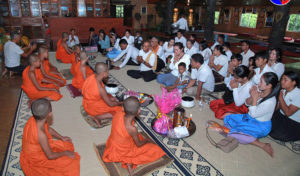
…
.
Cambodia has consistently taken a pragmatic stance on pressing issues like Myanmar, advocating for the swift and effective implementation of ASEAN’s Five-Point Consensus while upholding ASEAN Unity and Centrality. Cambodia’s diplomatic approach ensures that ASEAN remains at the forefront of addressing the Myanmar crisis through peaceful and diplomatic solutions, underscoring the importance of ASEAN’s agency in resolving regional conflicts.
In her address to the 45th AIPA General Assembly, Samdech Khuon Sudary emphasized ASEAN’s centrality in navigating the complex geopolitical tensions that have challenged global governance and the international order. She urged ASEAN parliamentarians to stay vigilant in defending regional interests, promoting peaceful co-existence, and reinforcing ASEAN’s convening power and normative influence in shaping the future of the region.
Samdech Sudary also highlighted the importance of ASEAN unity and collective action in addressing common issues and challenges. Among her priorities were upholding open and inclusive regionalism, leveraging the Regional Comprehensive Economic Partnership (RCEP) to deepen regional integration, and advancing emerging critical areas of growth, such as the green and digital economies. Additionally, she emphasized the need to prioritize climate action and gender equality—both crucial to ASEAN’s sustainable development and inclusive growth.

….
.
Samdech Sudary also advocated for enhanced ASEAN connectivity, not only through physical infrastructure but also institutional frameworks. She proposed concrete steps to bolster connectivity for inclusive growth, such as coordinating policies to strengthen regional integration, harnessing digital transformation, and ensuring that the benefits of economic growth are equitably shared across ASEAN’s diverse populations.
Samdech Sudary underscored that parliamentary diplomacy and cooperation remain essential instruments in promoting regionalism and multilateralism. These efforts align with ASEAN’s core principles, shared values, and norms, as outlined in the ASEAN Charter, the Treaty of Amity and Cooperation, and the ASEAN Outlook on the Indo-Pacific. As ASEAN looks towards the future, Cambodia’s active participation in forums like AIPA will continue to strengthen the region’s ability to tackle both current and emerging challenges, ensuring that ASEAN remains a pillar of stability, cooperation, and growth in an interconnected world.
Cambodia’s role within ASEAN, demonstrated through its parliamentary diplomacy, reaffirms the Kingdom’s international responsibility and commitment. As the region faces an increasingly complex and volatile geopolitical landscape, Cambodia’s proactive engagement through parliamentary channels will remain a crucial element in safeguarding her core national interests.
 THE EDITOR
THE EDITOR

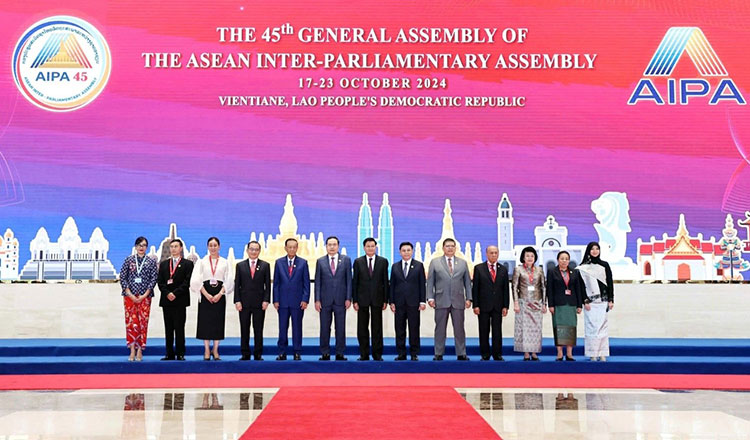
 Memento Maxima Digital Marketing
Memento Maxima Digital Marketing










